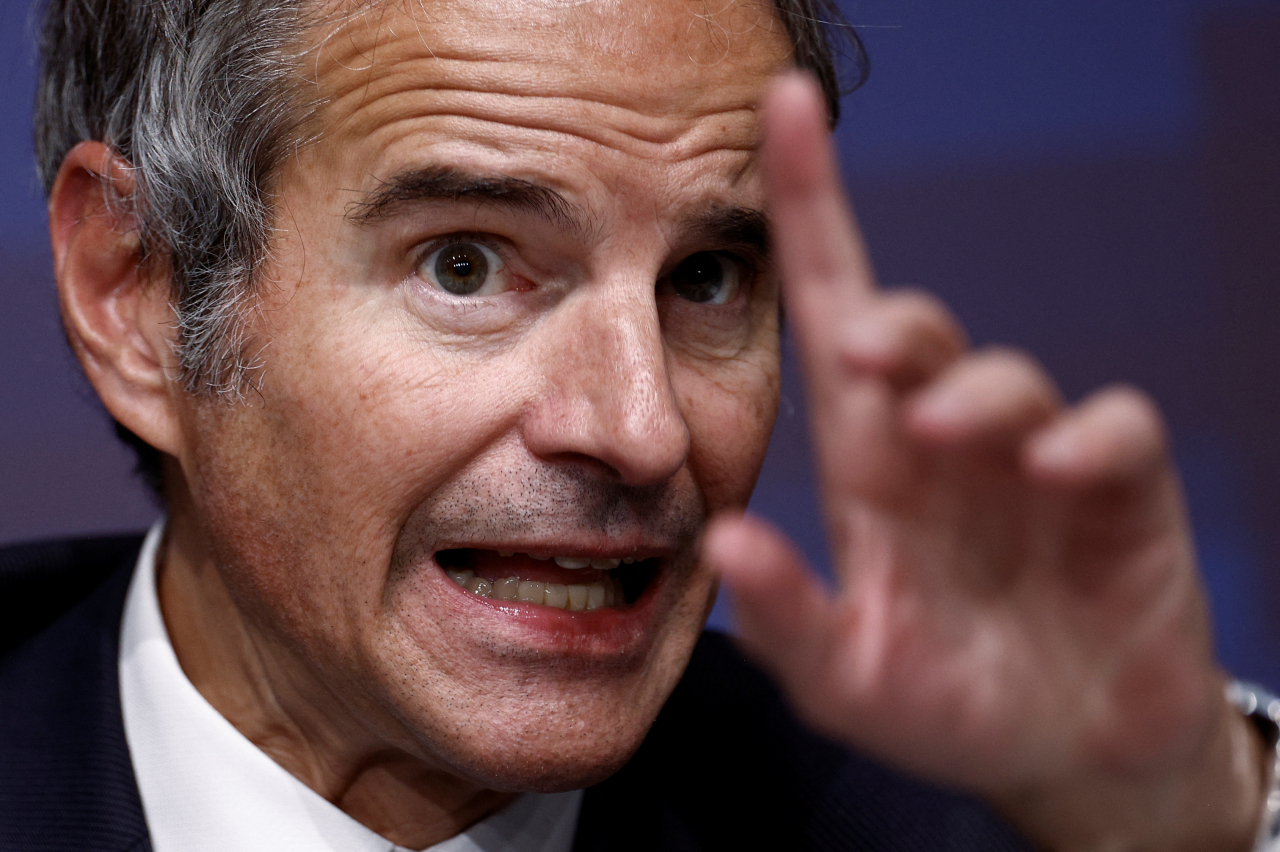
Foreign Minister Park Jin and UN nuclear watchdog chief Rafael Grossi met in Seoul on late Thursday afternoon to discuss ways of putting checks on North Korea’s nuclear buildup and to work together on Japan’s decision to release contaminated water from the destroyed Fukushima nuclear power plant.
The three-day trip by the chief of the International Atomic Energy Agency that started Wednesday is the latest highlight of Seoul’s efforts to muster international support to deal with an increasingly belligerent North Korea, which has conducted a record number of missile tests this year. Meanwhile, Japan has dismissed health concerns over the water release, prompting neighboring countries to seek UN intervention.
Solutions that Park and Grossi shared at Thursday’s meeting -- held for the first time in five years -- were not made public as of press time, but they were believed to have debated stronger steps to curb North Korea’s nuclear ambitions and measures to alleviate misgivings about Japan’s disposal.
Upon arrival in Seoul on Wednesday, the nuclear watchdog chief essentially acknowledged that the North could test a nuclear device at any time. The last test took place in 2017, when Pyongyang revealed an intercontinental ballistic missile capable of reaching any part of the US. The isolated country has since largely rejected any peace talks -- except for the short-lived inter-Korean detente in 2018 when the two Koreas held summits that failed to live up to peace proposals made there.
North Korea’s military buildup since then has led to closer security ties between South Korea and its biggest ally, the US. The two countries’ air forces set up a new space forces unit this month to better counter North Korea’s expanding nuclear and missile programs.
And this week, South Korea’s chief nuclear envoy to the US, Kim Gunn, stressed that North Korea should “face the reality” and return to nuclear talks, as the international community will not recognize Pyongyang as a nuclear power.
“For the last 30 years, the community has stayed united for a common goal of making North Korea completely nuclear-free,” Kim said, adding a shift in the longstanding mission would never take place “in a million years,” at a meeting held regularly with his counterparts from the US and Japan to deepen the three-way coalition on North Korea.
But Tokyo is a tricky partner for Seoul, especially ahead of the Japanese government’s plan to discharge waste from the Fukushima plant into the ocean as early as April next year. The nuclear facility was crippled by a massive earthquake and tsunami in 2011.
Environmental groups including Greenpeace have called for more thorough checks on the waste before disposal, citing health risks from radiation exposure. Japan is planning to release the “treated” water in stages, saying health risk concerns are overrated since contaminated water is diluted.
Last month, the IAEA sent a group of experts to the Fukushima plant as part of an inquiry to settle the dispute over safety worries. The group, which includes South Korean scientists, will publish its assessment early next year.
Meanwhile, the presidential office released a statement, saying President Yoon Suk-yeol and Grossi agreed to expand cooperation on addressing growing concerns over North Korea’s nuclear threat as well as Japan’s nuclear plant, at their talks held hours before the Park-Grossi meeting.









![[Today’s K-pop] BTS pop-up event to come to Seoul](http://res.heraldm.com/phpwas/restmb_idxmake.php?idx=644&simg=/content/image/2024/04/17/20240417050734_0.jpg&u=)

![[Graphic News] More Koreans say they plan long-distance trips this year](http://res.heraldm.com/phpwas/restmb_idxmake.php?idx=644&simg=/content/image/2024/04/17/20240417050828_0.gif&u=)






![[KH Explains] Hyundai's full hybrid edge to pay off amid slow transition to pure EVs](http://res.heraldm.com/phpwas/restmb_idxmake.php?idx=652&simg=/content/image/2024/04/18/20240418050645_0.jpg&u=20240419100350)

